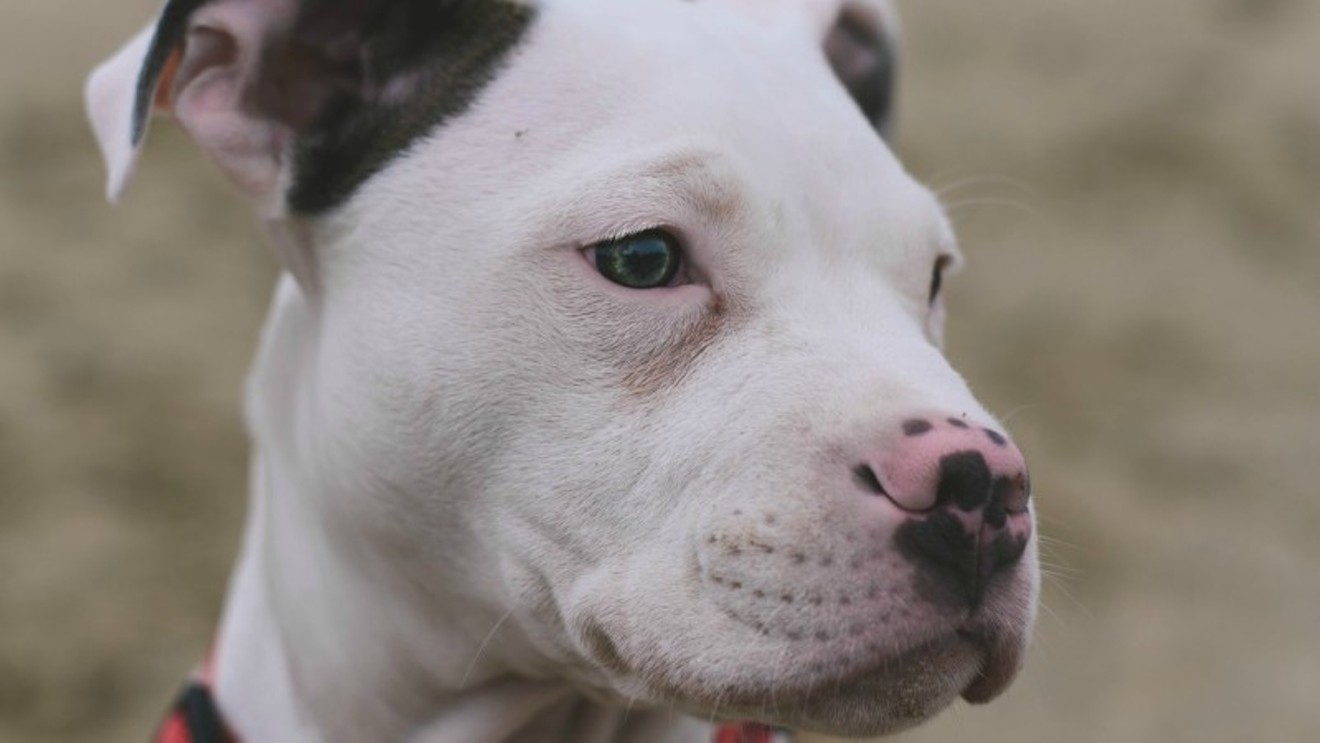It took only three decades, but on February 10, Denver City Council effectively ended a ban on three pit bull-related breeds that had been in place since 1989, and had resulted in thousands of dogs being euthanized.
The vote was 7-4 at the council meeting and might have been closer had Stacie Gilmore been present; the District 11 council member had turned thumbs down on the proposal during its first reading on February 3 but missed last night's session, as did District 9's Candi CdeBaca, who favored the measure.
Chris Herndon, the original backer of what he called a compromise plan rather than a full-scale repeal, was joined on the "yes" side of the equation by Kendra Black, Amanda Sandoval, Jamie Torres, Jolon Clark, Robin Kneich and Chris Hinds. Debbie Ortega, Amanda Sawyer, Kevin Flynn and Paul Kashmann opposed.
While some had expected overwhelming support for Herndon's notion, Shira Hereld, co-founder of Replace Denver BSL (the letters stand for "Breed Specific Legislation"), took nothing for granted. For her, that made the victory even sweeter.
"We are absolutely ECSTATIC about the vote...and thoroughly relieved," she notes via email. "It was an extremely tense and close call."
The pit bull prohibition was aimed specifically at owners of American Pit Bull Terriers, American Staffordshire Terriers and Staffordshire Bull Terriers. As Herndon told us earlier this month, he wanted the city to create a "breed-restrictive license. If you have somebody who should have one of these breeds, and if this bill should pass, they would go to Denver Animal Protection [aka the Denver Animal Shelter] and get a license. They'll just have to give the name of the owner and the address where the dog will reside, two emergency contacts, a description of the pit bull and a recent photograph, proof that the dog is microchipped and current on vaccinations, and pay an annual fee. And if 36 months pass and the dog doesn't have any violations of Denver animal ordinances, the dog can transition to the regular license that any Goldendoodle can have now."
The plan also institutionalizes data collection, which Herndon saw as an important component: "We know these breeds are in our community — and because they're banned, there's a higher possibility that the owner won't seek out professional guidance or even proper pet care. And right now, we don't know where these dogs are. If the ordinance passes, we will, and that will make our community safer."
The public turned out in force for the final debate. "My co-lead and I gave out all 100 of our Replace Denver BSL buttons to supporters in the room," notes Hereld, who moved out of Denver because of the ban but is eager to return now. "It was packed with supporters and only a handful of folks spoke against."
She adds: "The public hearing may make it look like the crowd was equally divided pro/con. However, the hearing is structured to require a 50-50 split of pro/con of speakers. Later, the council members said that sixteen people had not been able to speak. ALL sixteen people who hadn’t spoken yet were pro — no other cons had signed up — and most were Denver residents."
Among those advocating for Herndon's concept were "several experts" who "dispelled many myths regarding pit bulls and BSL," she notes. "As Councilman Clark stated at the end, 'In this time more than any other, facts matter.'"
The new law will go into effect in ninety days, and Hereld can't wait. "This is huge and historic," she says, "and I think all the Replace Denver BSL leaders are overwhelmed with excitement and relief. We can now rest and then look forward to supporting licensing efforts and encouraging the community to train and socialize their dogs. We are so grateful for our supporters and for the council members putting their trust into Denver residents to be responsible owners."
[
{
"name": "Air - MediumRectangle - Inline Content - Mobile Display Size",
"component": "12017618",
"insertPoint": "2",
"requiredCountToDisplay": "2"
},{
"name": "Editor Picks",
"component": "17242653",
"insertPoint": "4",
"requiredCountToDisplay": "1"
},{
"name": "Inline Links",
"component": "18838239",
"insertPoint": "8th",
"startingPoint": 8,
"requiredCountToDisplay": "7",
"maxInsertions": 25
},{
"name": "Air - MediumRectangle - Combo - Inline Content",
"component": "17261320",
"insertPoint": "8th",
"startingPoint": 8,
"requiredCountToDisplay": "7",
"maxInsertions": 25
},{
"name": "Inline Links",
"component": "18838239",
"insertPoint": "8th",
"startingPoint": 12,
"requiredCountToDisplay": "11",
"maxInsertions": 25
},{
"name": "Air - Leaderboard Tower - Combo - Inline Content",
"component": "17261321",
"insertPoint": "8th",
"startingPoint": 12,
"requiredCountToDisplay": "11",
"maxInsertions": 25
}
]












